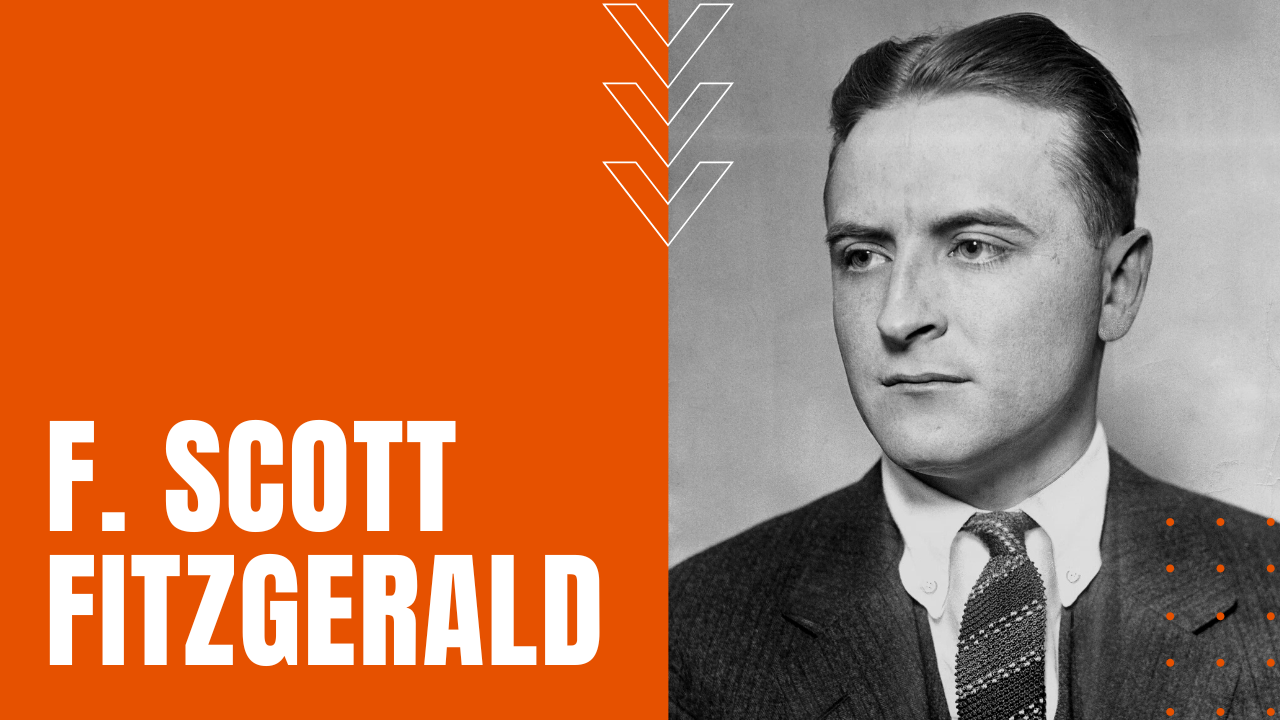F. Scott Fitzgerald

Born in 1896 St. Paul Minnesota, after living much of his youth in New York State, Francis Scott Key Fitzgerald befriended future literary critic Edmund Wilson while studying at Princeton University, dropping out of college to join the army during the First World War.
Fitzgerald’s Early Literary Success
Stationed in Alabama, Fitzgerald met Southern debutante Zelda Sayre, and while she at first rejected his proposal of marriage due to his lack of financial prospects, after the 1920 publication of his wildly successful debut novel, This Side of Paradise, which examined the lives and morality of carefree American youth at the dawn of the Jazz Age, Fitzgerald’s instant elevation as the voice of the Roaring Twenties won Zelda’s hand in marriage.
Furthering his reputation as the spokesman of the Roaring Twenties, Fitzgerald’s second novel, The Beautiful and the Damned, propelled him into a cultural elite, moving with his stunning southern wife into the Parisian denizens of the Lost Generation, drinking and dancing until dawn with the likes of Gertrude Stein, Ernest Hemingway, E.E. Cummings, Hart Crane and more.
The Darkside of Success
Despite Fitzgerald’s financial success, his extravagant lifestyle accelerated his literary output with a parade of short stories for popular magazines such as The Saturday Evening Post, Collier’s Weekly and Esquire, at the same time thrusting the sought-after couple into alcoholism for Fitzgerald and mental illness for Zelda, which ultimately forced her into a mental institution for schizophrenia.
After the lackluster publication of the Great Gatsby in 1925, Fitzgerald’s 1934 publication of Tender Is the Night ended his popularity during the hardscrabble days of the Great Depression, where many Americans blamed the flamboyant lifestyles of the flapper generation on the financial downfall of a nation.
Fitzgerald’s Failure and Death
Living with columnist Sheilah Graham after his move to Hollywood, where he embarked upon a failed career as a screenwriter, Fitzgerald passed away at age 44 of a heart attack, leaving behind his uncompleted fifth novel, The Last Tycoon, which was published posthumously in 1941.
Despite the dual tragedies of F. Scott and Zelda, an appreciation for Fitzgerald’s work witnessed a resurgence in the early 1950s, transforming F. Scott Fitzgerald into one of the most revered writers of 20th-century America.
